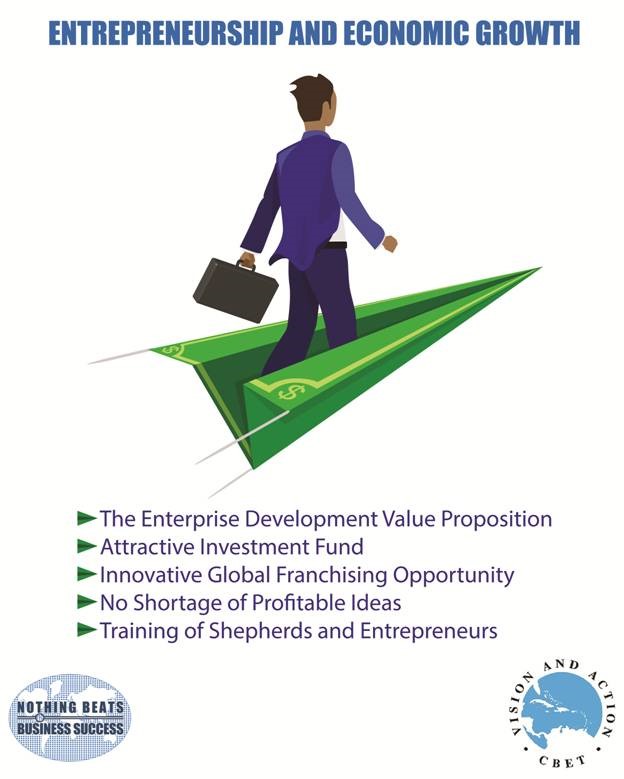“Make me to know your ways, O Lord; teach me your paths. Lead me in your truth, and teach me, for you are the God of my salvation; for you I wait all day long.” – Psalm 25:4-5
Last week’s column was about the urgent need for governments to innovatively and aggressively create an attractive enabling environment. This includes (1) sourcing capital to restructure national debt and to provide enterprise development seed capital in the national interest, (2) incentivizing the private sector to provide equity and working capital to stimulate a new growth paradigm, (3) encouraging the private sector to support an entrepreneurship model as an alternative means of earning a living for displaced civil servants, and (4) introducing enterprise development in a wide range of traditional and creative economic sectors as a means of inducing economic growth.
Once the capital is secured for debt restructuring and the initial growth thrust, whether by the International Monetary Fund (IMF) or by a partnership with rich countries, then the immediate thrust must be to introduce the enterprise development value proposition to all sectors, including laid-off civil servants.
What is the enterprise development value proposition?
The enterprise development value proposition is the solution to the national problem of stymied economic growth, bearing in mind that economic growth can only take place “one successful enterprise after another”. The hypothesis is that if governments adopt the enterprise development value proposition then the end result will be sustainable economic growth.
The status quo is that governments keep articulating the problem and paying lip service to it but they have not fully accepted that a well researched and tested potential enterprise development solution exists in the form of a Shepherding ModelTM which evolved in the Caribbean at the turn of the century.
I had the privilege of leading the initial research at the Caribbean Development Bank (1998-2001) and then led a team, with help from the public and private sectors around the Caribbean (2001-2008), to engage in wider regional discussion. In 2008, the Barbados government responded positively to a request to provide financial support to test the Model in Barbados. The results of this pilot (2008-2012) were very pleasing and many of the nine projects which were in the pilot are still alive today, despite the premature end to the life of the pilot, which attests to the quality of the foundation laid by the team.
I continued to enhance the Model in Trinidad and Tobago (2012 to date), where the Management of Business Systems (ManOBizTM) Matrix, a Shepherding tool, emerged.
Now the Model is ready for implementation in each country of the Caribbean and beyond.
The Model consists of four well documented systems: (1) The identification and selection of entrepreneurs with export potential projects and assigning them a shepherd from “Day 1”;
(2) Shepherding practices which are expedited by the ManOBizTM Matrix shepherding tool; (3) the attractive capitalization of an investment fund, a private sector initiative with public sector support ; (4) an integrated seed, equity and working capital fund management system designed to meet the needs of the entrepreneur at every stage along the journey to sustainable success.
Our research has shown that there is no shortage of profitable ideas in the Caribbean. There are plenty potential shepherds around who will be required to undertake a “Training of Shepherds” programme. Financiers, who have expressed an interest in capitalizing the fund, include credit unions, insurance companies, commercial banks, micro-finance institutions, businesses and high net worth individuals.
The Model is now available for interested partners who are looking for an innovative national, regional or global franchising opportunity with spin off effects to the triple bottom line (profit, people and planet).

Charles Sherlock Fillmore (1854-1948) taught that wisdom is a God-given spiritual power that exists in every person. Let the Divine light within us shine on our path and guide us daily as we reverse the trend, augment the recovery process towards sustainable success. Let us get serious about enterprise development.
